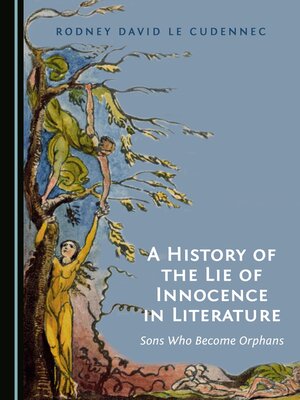A History of the Lie of Innocence in Literature
ebook ∣ Sons Who Become Orphans
By Rodney David Le Cudennec

Sign up to save your library
With an OverDrive account, you can save your favorite libraries for at-a-glance information about availability. Find out more about OverDrive accounts.
Find this title in Libby, the library reading app by OverDrive.



Search for a digital library with this title
Title found at these libraries:
| Library Name | Distance |
|---|---|
| Loading... |
This book traces the history of what it terms the "lie of innocence" as represented in literary texts from the late 18th century to contemporary times. The writers selected here—William Blake, Herman Melville, William Faulkner, Graham Greene, and Cormac McCarthy—write at various points in which the western world was undergoing a process of secularization. This work commences with a study of the bible demonstrating the extent to which "innocence" is realized there as a lie. It identifies in the bible how "innocence" is used for political, social and ethical expediency, and suggests that the explications of each reference can be demonstrated to testify to an absence of innocence, to indeed the lie of its supposed meaning. In analyzing the selected texts, emphasis is given to the continuation of biblical relevance even when the described world of social behavior works outside religious and biblical notions of good and evil. Instead, this book embraces an interconnection between Nietzsche's "innocence of becoming" and the biblical tree of life that had been rejected in western mythology. It is, this work argues, the choice to sanctify the biblical tree of knowledge that presumed to know what was good and what was evil that brought about the lie of innocence. The book focuses on the relationship between fathers and sons, arguing that it is the orphan son, cut away from paternal ties, who embodies the possibility for the world to embrace an "innocence of becoming". It further shows, with some optimism, that in a post-apocalyptical world, as envisaged by McCarthy, the son can be freed to choose the tree of life over the tree of knowledge.







